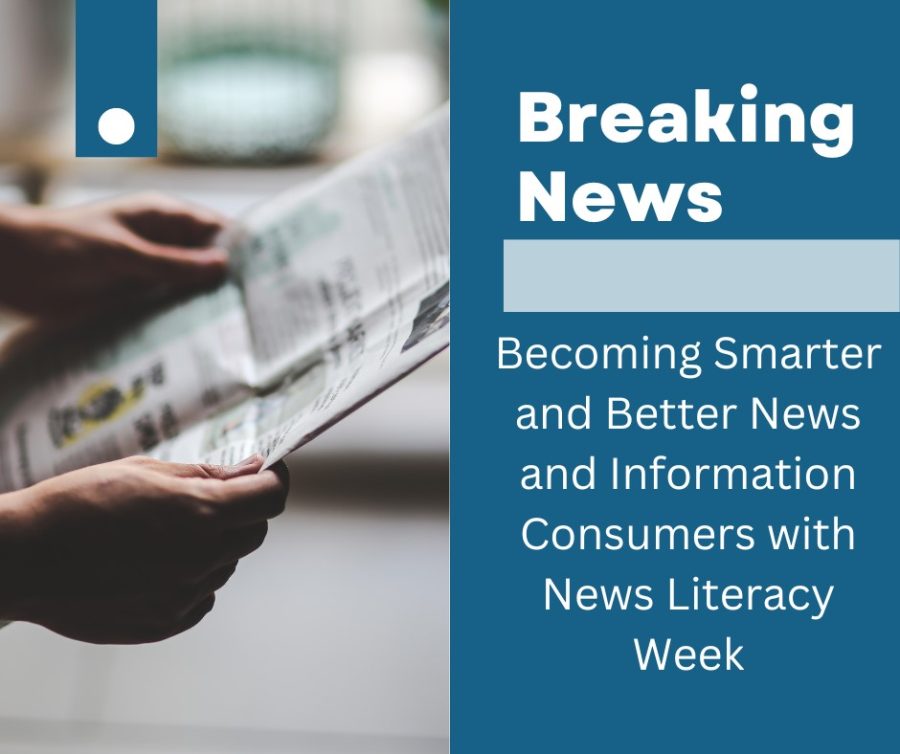Becoming Smarter and Better News and Information Consumers with News Literacy Week
January 24, 2023
Fake news is basically everywhere and can easily be misleading!
As part of the information age, we should all do our part to learn how to become better news and information consumers. We can start by learning how to fact check things before we share them on the internet.
But even with fake news, most people who consume media don’t know just how many things can be fake, nor do they know how to check it. As a result back in 2020 the News Literacy Project was launched as a partnership between journalism and schools to bring awareness to help readers and viewers of media to learn how to tell fake news apart from real news, how to check for information for its authentication, and identify different types of information.
News literacy is designed to help students develop critical thinking skills in order to judge the reliability and credibility of information. It’s important that we know what this is because sometimes information that can be easily accessible is unreliable. We can be more news literate by doing more than just looking on google, and using the information that just pops up first. We should look into the site; make sure that the website is reliable.
To be news literate to also means to understand bias, which can be just as harmful as fake news.Bias is having a preconceived notion about something. We encounter bias in the news we consume as some news outlets are known for learning more towards one belief than another. We encounter bias in our social media feeds when people post about something that supports only their opinion or only share media pages that are known to lean more towards one side than another. Confirmation bias, sampling bias, and brilliance bias that can affect our ability to critically engage with information. We cannot escape bias in the information we receive but as long as we are able to recognize biases in the media then we are able to form our own understanding and opinions of news.
News literacy empowers people to think critically about information and their use of digital tools. If you want to spread truth you need to assume that other people aren’t perfect and may make mistakes. Being news literate is having the ability to access and analyze media messages as well as create, reflect and take action, using the power of information and communication to make a difference in the world.
Check out out past News Literacy Broadcast with WMAR’s Good Morning Maryland Show.
Stay tuned to our social media this week for more videos and information about how to be news literate.
Source:
